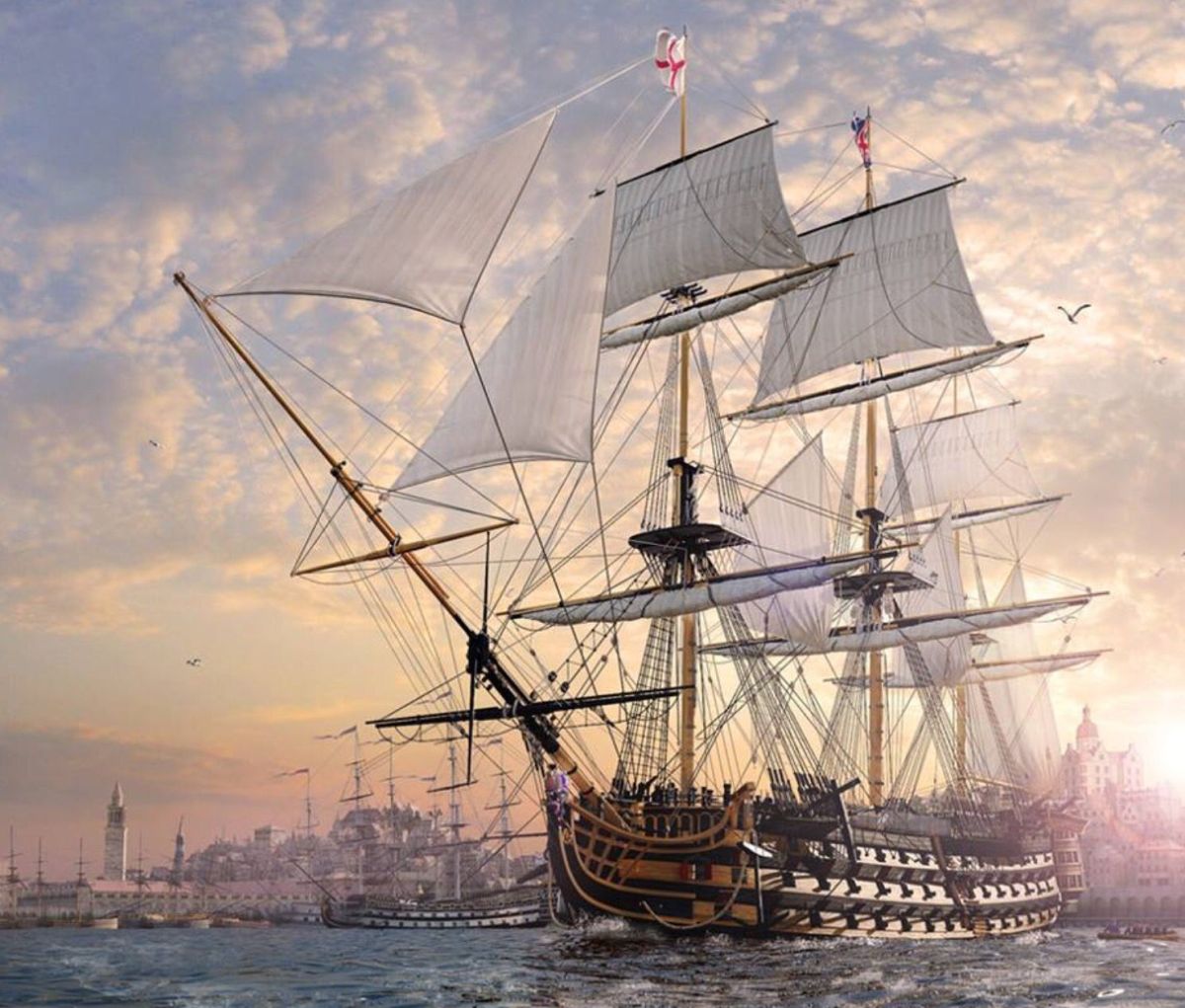Aldarion
Neoreactionary Monarchist

War at Sea – 18th Century Ship of the Line
18th century was a century of sailing and naval expansion in Europe. Major discoveries had been made in previous centuries, such as reaching Americas in the late 15th and early 16th centuries (disc…
 warfantasy.wordpress.com
warfantasy.wordpress.com
18th century was a century of sailing and naval expansion in Europe. Major discoveries had been made in previous centuries, such as reaching Americas in the late 15th and early 16th centuries (discovery of Americas – 1492, discovery of the Pacific Ocean – 1513, discovery of Peru – 1528). But the advancement in sailing techniques, especially in the second half of the 18th century, had made sailing far less dangerous than it used to be.
Despite all the advances, bad living and sanitary conditions on ships still took many lives. Hunger, thirst, dysentery, scurvy and tuberculosis were a permanent company, and there was always the possibility of contracting one of exotic diseases such as the yellow fever. Deaths due to disease far exceeded deaths due to battle or shipwreck, with scorbut being the primary killer, followed by various fevers. Large number of people living in crowded and unsanitary conditions made epidemics a regular occurence.
Discipline was harsh, with many punishments being physical. Still, unnecessary cruelty was rare.
To protect the trade routes and outposts, powerful navy was necessary. Most wars in fact were won or lost on the sea. Three 18th century battles basically decided outcome of wars:
Autumn 1781: Saviors of Independence
By winning the battle in the Chesapeake Bay, French squadron commander de Grasse forced the English to capitulate in Yorktown and accept negotiations which would lead to ultimate recognition of the US independence. On the 28th August 1781, English Admiral Hood arrived to Chesapeake to reinforce general Cornwallis who had fortified himself in Yorktown. Having not found the French Fleet, he left for New York.
De Grasse, reinforced by Ternay's squadron, landed his expeditionary corps and anchored his 36 warships in the Chesapeake Bay. English squadron under command of Admiral Graves arrived on 5th September, but the 21-ship strong squadron was overwhelmed by De Grasse's fleet. Cornwallis, unable to resupply due to French naval blockade, capitulated in early October.
It is not wrong to say that De Grasse and his 36 ships changed the world forever.
Spring 1794: Saving the Revolution
France was at the border of starvation. Revolution and the currency crash meant that it could not buy food abroad. To solve the problem, Committee gave Rear Admiral Van Stabel the ministarial powers and sends him to buy wheat in the United States. In the Chesapeake Bay, Van Stabel managed to collect a fleet of 138 ships which had cargo of 240 000 cents (1 cent = 100 kg) of flour, rice, sugar etc. English were aware of the mission, and so convoy had to be protected. Admiral Villaret has only one task: protect the convoy.
Villaret set sail and on 28th May engaged the English squadron of Admiral Howe. In the battle which lasted until 1st June, French fleet was soundly beaten. English celebrated the victory which was later called "Glorious First of June" – but the joke is on the English. Villaret had achieved his goal, and Van Stabel's convoy reached France. His convoy may have saved the revolution.
1798: Battle of the Aboukir Bay and End of a Campaign
Napoleon Bonaparte won a victory in Egypt – but this victory was quickly made irrelevant by British control of sea lanes. With 13 ships, Nelson destroyed French fleet at Aboukir and with it, Napoleon's eastern dream.
